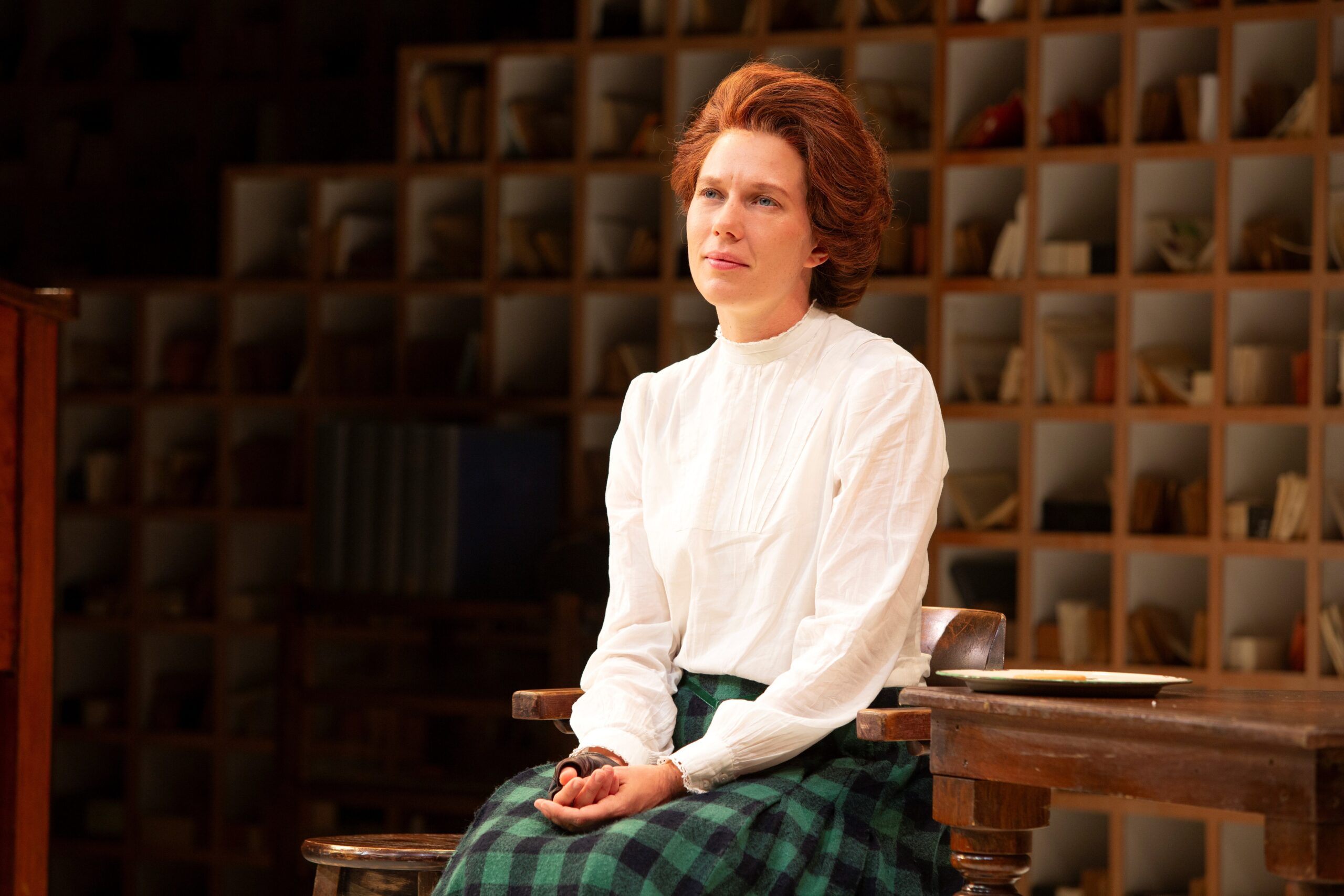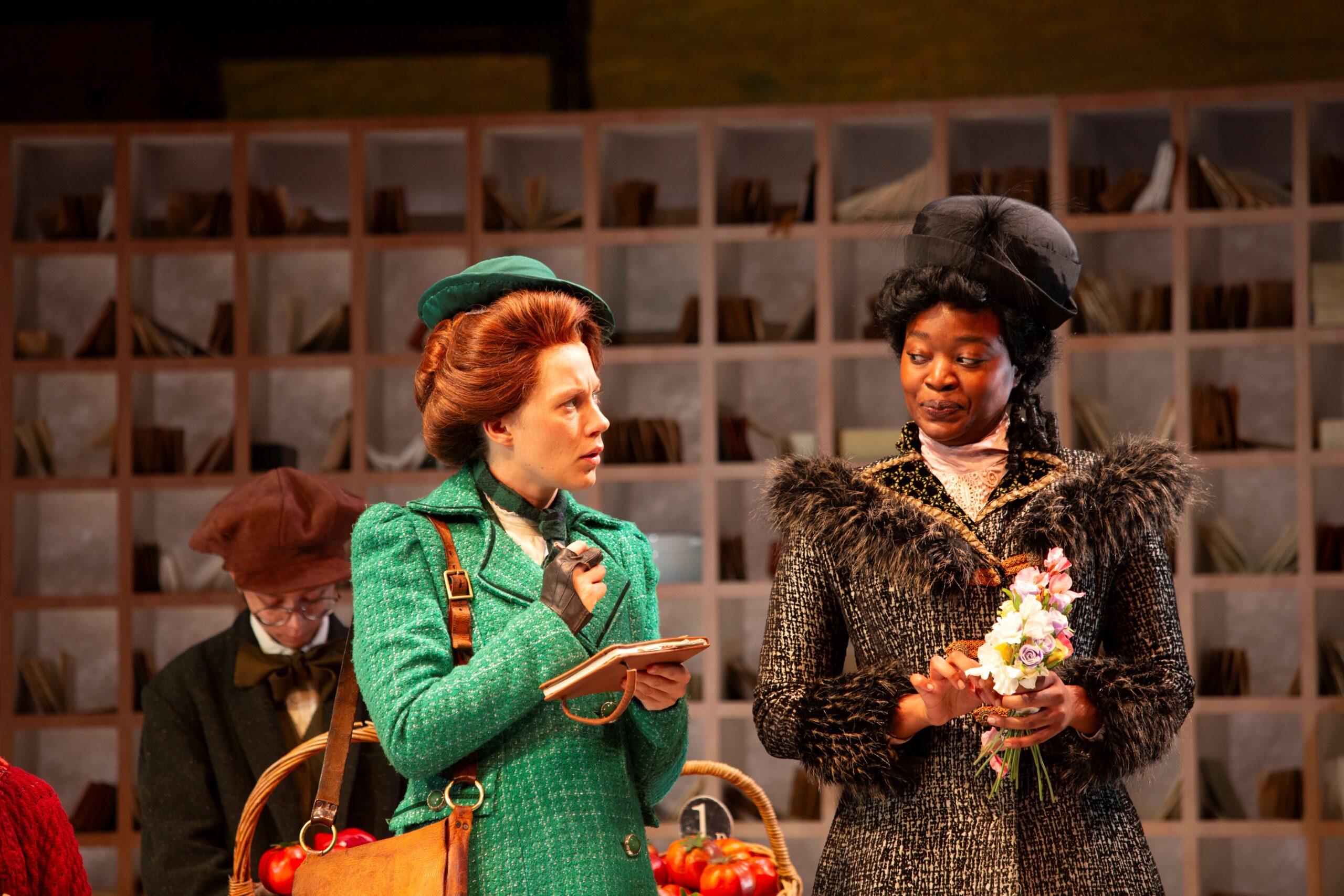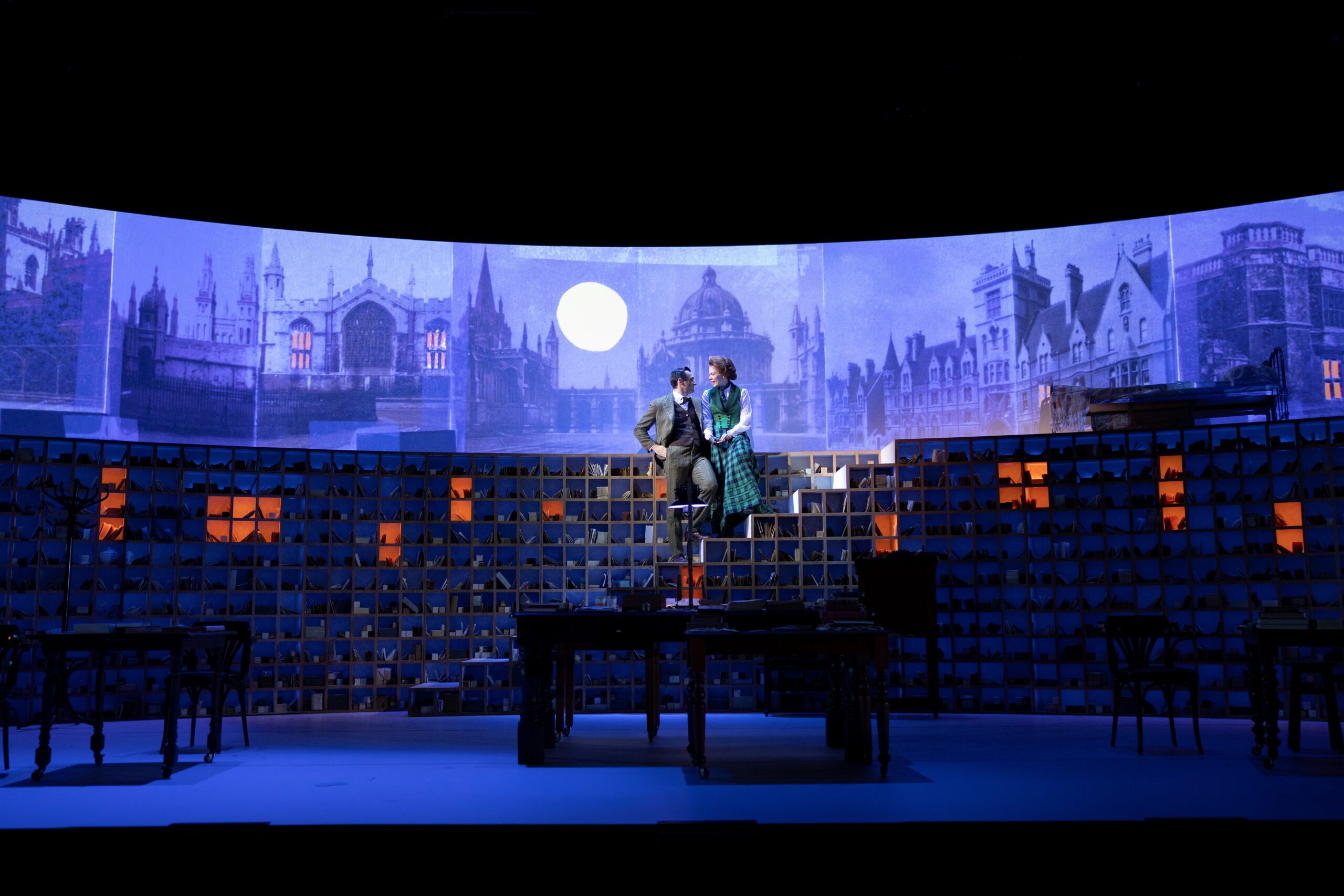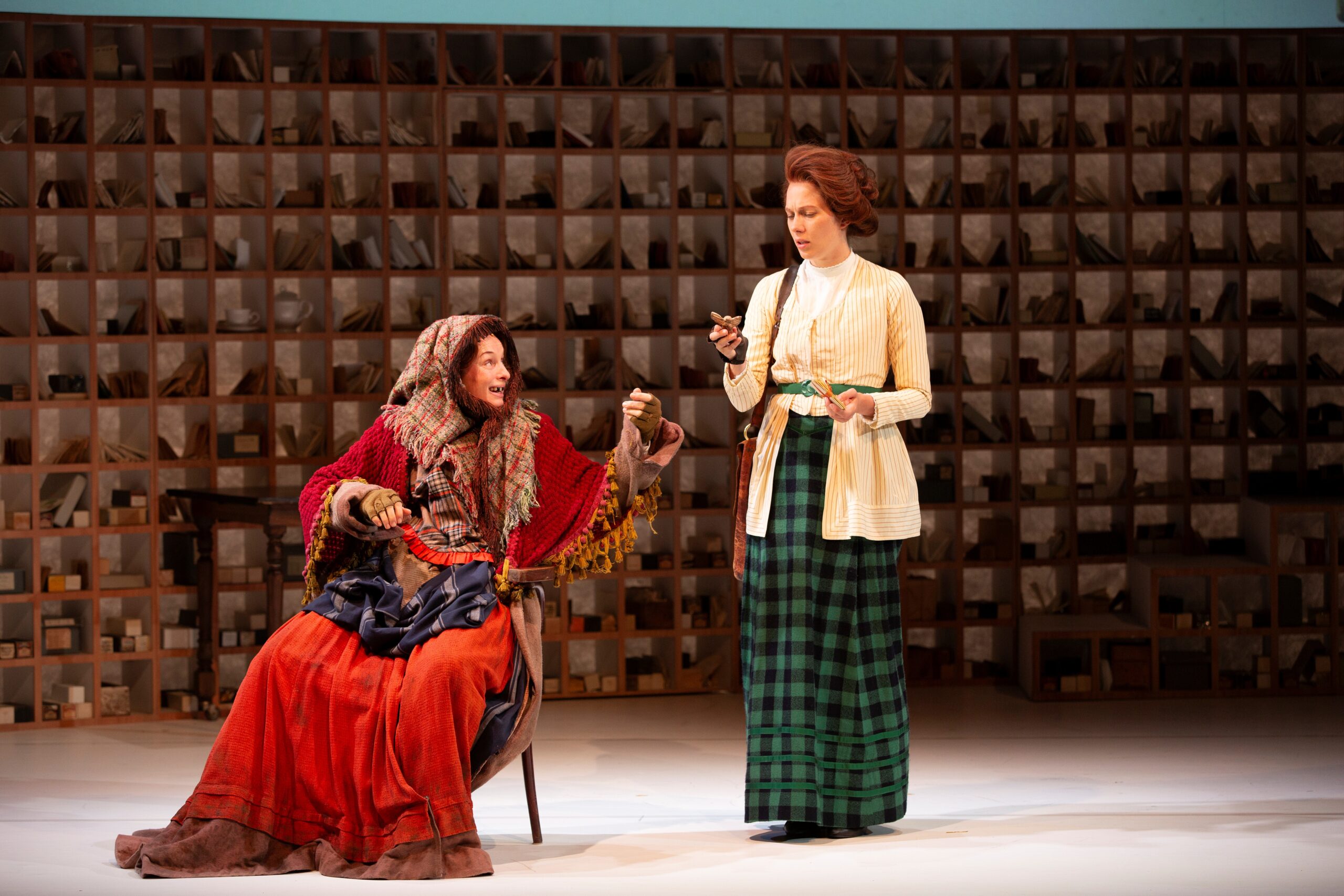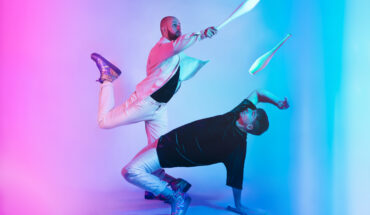The Dictionary of Lost Words, the theatrical adaption of Pip Williams’ runaway best-seller, opened at the Arts Centre this week to a standing ovation.
The story of The Dictionary of Lost Words follows Esme Nicoll, a precocious, motherless child of an Oxford lexicographer, as she navigates the expectations and challenges of womanhood.
When we first meet Esme, in 1886, she is four years old and scrambling underfoot in the scriptorium of James Murray and his team of lexicographers, working diligently to compile the first Oxford English Dictionary.
(Although we take it for granted today, the Oxford English Dictionary remains one of the great ambitious achievements of modern times – a painstaking process which took more than 70 years to complete.)
Esme, in conversation with her friend and housemaid Lizzie, realises that, despite the ambition of Murray and his team to produce a dictionary which is exhaustive and comprehensive, their work has a major blind spot – the dictionary team is deliberately excluding many words they deem either too ‘naughty’ or too common.
To remedy this, Esme starts a personal project: to compile her own dictionary of ‘lost’ words. She sets out to capture the language and slang of women and the lower class – the first urban dictionarist. This leads to some cleverly playful scenes at the Oxford Covered Market, and a hilarious, unexpected diversion into the origins and use of the C-word.
Through this exploration, she comes into contact with the emerging suffragette movement and begins to find her voice while straddling different social spheres.
As Esme’s story unfolds, we get a great sense of the prevailing views and challenges of the late Victorian and Edwardian ages: limited educational and economic opportunities; a constraining social structure; the stigma of sex and unwanted pregnancies; and the love, loss and grief of the Great War.
Brenna Harding does an excellent job in bringing out the complexity of Esme. Rachel Burke, Angela Mahlatjie and Ksenja Logos all shine. The costume and production design are also excellent, having been refined over multiple seasons.
The script, adapted by Verity Laughton in collaboration with author Pip Williams, canvasses big ideas and themes with subtle dialogue while balancing the need to stay true to the source material. It also gives every member of the ensemble cast a chance to show their range by switching from the serious to the silly.
The story serves as a reminder that ideas and concepts we now largely take as fundamental, such as a women’s right to vote, were not ever thus, and that by looking honestly to the past we can recognise how far we’ve come.
– Simon Whatmore
The Dictionary of Lost Words, a Sydney Theatre Company and State Theatre Company South Australia co-production is now playing for a limited season until Sunday 17 March at the Arts Centre, get your tickets here.

